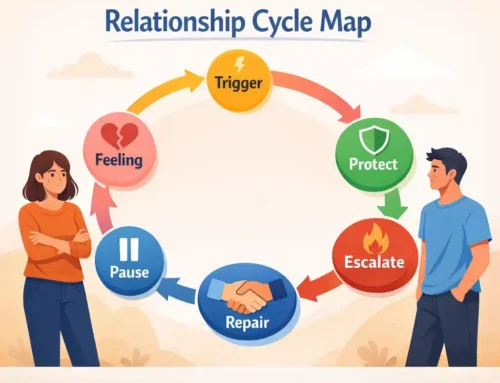
Approx. read time: 7.2 min.
Post: Living in a Bubble: How Family Shapes Our Realities
Living in a Bubble: How Family Shapes Our Realities
Everyone lives in a bubble to some extent. It’s the space where our beliefs feel right, our experiences feel normal, and our way of life feels like the default. We rarely notice the bubble until we’re confronted with something that doesn’t fit. One of the biggest contributors to this invisible shell? Family.
From the moment we’re born, family becomes the framework for how we understand the world. It sets the rules, tells the stories, and draws the boundaries. While bubbles can offer safety and identity, they can also limit perspective, growth, and connection with people outside them. When that bubble is created and maintained by family, its influence can run deep and last a lifetime.
What Does It Mean to “Live in a Bubble”?
Living in a bubble means being surrounded by a limited set of experiences, ideas, or beliefs that reinforce each other. It’s not just about physical isolation; it’s about intellectual and emotional insulation too. Bubbles can form around politics, religion, culture, class, or even something as simple as the way a family communicates or shows affection.
When you live in a bubble, everything inside feels normal and everything outside feels strange—or even threatening. It’s like living in a self-contained world where your version of reality is rarely challenged. That’s not always a bad thing, but it becomes a problem when the bubble gets too tight to allow in new ideas or different people.
Family as the First Bubble
The first bubble most people experience is the one created by family. It’s the household you grow up in, the rules you’re taught, the stories you hear, the way your parents react to the news, the jokes that are okay to make, the silence around certain topics.
Family sets the emotional tone for your bubble: how you handle conflict, how you express love, what success looks like, what failure means. For example, if you grow up in a family where money is always tight and stress around bills is constant, your bubble may include a sense of scarcity even when your financial situation changes later in life. Or if your family never talked about emotions, you might find it hard to open up, even with close friends.
In that way, family doesn’t just teach you how to behave—it shapes how you see.
The Influence of a Family Bubble
The influence of a family bubble can show up in several ways:
1. Beliefs and Worldview
Family often teaches us what’s right and wrong, what’s normal and weird, what’s safe and dangerous. These lessons become the lens through which we interpret everything.
For instance, if you grow up in a politically conservative household, you might assume that everyone who thinks differently is misinformed or naïve. On the flip side, if you’re raised in a highly progressive family, you might see traditional values as outdated or oppressive. Both bubbles feel justified from the inside.
Sometimes, it’s not even about politics—it could be ideas about gender roles, ambition, race, religion, or relationships. Family beliefs don’t just sit in your head. They live in your instincts. You don’t question them because they were baked in early.
2. Habits and Behaviors
Beyond beliefs, families also shape behaviors that become second nature. How you handle stress, how you show affection, how you talk about (or avoid) hard topics—these are all modeled and passed down.
A family that values emotional restraint may raise kids who struggle to express vulnerability. A family that avoids conflict at all costs might produce adults who fear confrontation even in healthy settings. On the other hand, a loud, argumentative family might raise someone who sees every disagreement as a fight to win.
These patterns are the architecture of the bubble—what you do automatically because it’s what you know.
3. Fear of the “Outside”
Family bubbles can also create fear—fear of the unknown, of other cultures, of failure, of change. Families may enforce strong “us vs. them” boundaries, even unintentionally.
Some families isolate themselves from people who don’t share their values or background. Others label outside influences as dangerous or inferior. This isn’t always done maliciously—it often comes from a place of protection. But it builds walls.
The longer someone stays inside that kind of bubble, the more foreign the outside world feels. They may come to believe that stepping outside the bubble is a betrayal—or that it’s simply impossible.
When the Bubble Becomes a Cage
There comes a point when the protective layer of the bubble starts to feel more like a prison. This usually happens when:
- Your personal experiences start to conflict with what you were taught
- You meet people who challenge your assumptions
- You want to grow, but feel held back by expectations
- You feel guilt or shame for thinking differently
These moments can be disorienting. Questioning the bubble often feels like questioning your family, your identity, your place in the world. But it can also be the start of something powerful: the chance to step into a bigger, more nuanced version of reality.
Breaking the Bubble (Or at Least Letting in Fresh Air)
You don’t have to completely reject your family or upbringing to grow beyond the bubble. It’s not about rebellion. It’s about reflection.
Here are a few ways people start expanding their view:
1. Exposure to Different Perspectives
Traveling, reading, meeting people from different backgrounds—these things start to poke holes in the bubble. You realize that your way isn’t the only way. Sometimes it’s not even the best way.
It’s not about abandoning your roots; it’s about widening your frame.
2. Therapy or Honest Conversations
Talking about your family patterns with someone who isn’t in your bubble—especially a therapist—can bring a lot into focus. You start seeing which parts of your worldview were chosen by you and which were inherited.
Even tough conversations with family can be revealing. Asking “Why do we believe this?” or “Have you ever thought differently?” can open doors. Not everyone will walk through, but it’s worth asking.
3. Choosing Your Own Values
Growing up means deciding what you want to keep and what you want to let go. Your family might have given you loyalty, faith, hard work, or resilience. They might have also passed down fear, rigidity, or judgment.
It’s up to you to sort through it. You get to keep what serves you and discard what doesn’t. That’s not betrayal—that’s adulthood.
The Risk of Staying in the Bubble
Not everyone leaves the bubble. Some people live their entire lives inside it. That’s their choice, but it comes with trade-offs:
- Limited empathy: If you’ve never stepped outside your perspective, it’s hard to connect with people who live differently.
- Stunted growth: If you avoid discomfort or difference, you miss out on learning and evolving.
- Inherited pain: Unquestioned family patterns often repeat across generations. If no one breaks the cycle, it just keeps going.
Staying in the bubble might feel safe, but it’s not always healthy. Comfort isn’t the same as freedom.
Final Thoughts: You Can Outgrow the Bubble Without Losing Yourself
The family bubble is powerful. It teaches you how to walk, talk, think, and love. But it doesn’t have to define your entire life.
You’re allowed to question it. You’re allowed to leave it. You’re allowed to come back to it on your own terms. You can love your family and still want something different. You can respect where you came from without staying stuck there.
Living in a bubble isn’t a flaw—it’s part of being human. But the real challenge is learning when the bubble has stopped protecting you and started holding you back.
That’s when it’s time to grow.
Related Videos:
Related Posts:
Bubble Bobble Part 2(Opens in a new browser tab)
How Do You Implement Bubble Sort in JavaScript?(Opens in a new browser tab)
How do I make my Java program sort data or an array? Bubble Sort.(Opens in a new browser tab)
How to utilize the bubble sort on machine code/assembly language?(Opens in a new browser tab)
Computer Programming Sorting Algorithms(Opens in a new browser tab)










